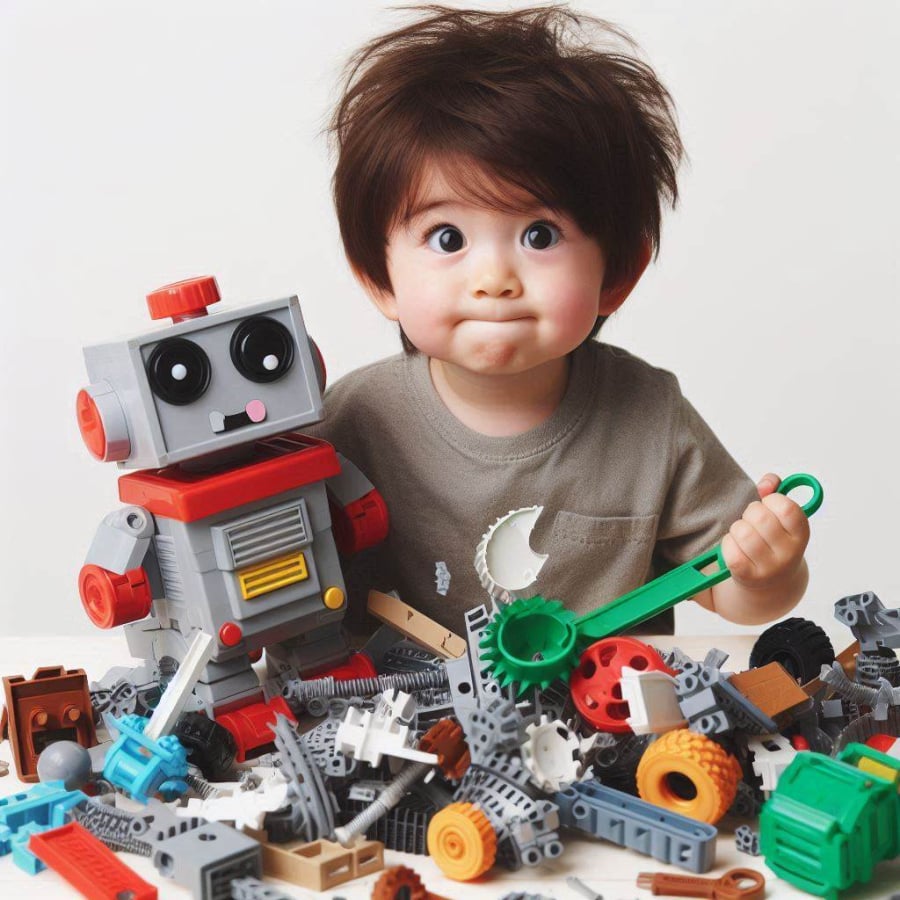In today’s competitive era, many parents seek methods to enhance their children’s intelligence. In fact, if children exhibit 7 early signs of a high IQ, parents should focus on nurturing and developing these qualities to help them optimize their potential.
A Strong Curiosity
One prominent trait of intelligent children is a thirst for knowledge and a desire to explore the world around them. For instance, when looking at a picture book, they are not merely content with listening to the story or admiring the vibrant illustrations; they are intrigued by the colors used to create those images.
These children often ask numerous questions about the colors in the pictures, such as why a particular shade of green was used or why the sun is depicted as a bright yellow. The question “Why?” constantly arises in their curious minds, driving them to seek answers. This curiosity is a vital aspect of cognitive development and a positive indicator of potential intelligence.

Encourage your child’s curiosity as it is a sign of their intellectual curiosity and potential.
Excellent Observational Skills
It is common for children to be fascinated by objects like wheels or leaves. However, adults often underestimate the significance of this interest, attributing it merely to aesthetic attraction. In reality, this keen observation reflects a subtle and sharp analytical ability.
Children with strong observational skills notice minute details and pay attention to aspects that adults might overlook. This enhances their understanding of the world, improves their problem-solving abilities, and enables them to learn more effectively. Sharp observation also helps children work more efficiently as they can identify shortcuts and leverage all available details and resources, thus increasing their productivity.
These children often exhibit dynamic brain activity, fueled by their insatiable curiosity and desire to explore. This very curiosity propels their cognitive development forward in a continuous and powerful manner.
Learning Through “Destructive” Actions
Parents might be perplexed by their children’s tendency towards “destructive” behavior. However, it’s important to understand that this seemingly negative trait can be viewed as a unique method of exploration. Much like little detectives, children take things apart to uncover the secrets within.
This not only entertains them but also enhances their cognitive abilities and knowledge through hands-on experience. Each experiment contributes to their intellectual growth. Instead of hindering this behavior, parents should guide and direct their children towards safe and reasonable exploration.

Encourage your child’s natural curiosity and provide safe environments for exploration.
Advanced Language Skills
While some believe that a child’s language abilities are solely dependent on prenatal education, others emphasize the role of parental involvement and the environment in which a child grows up. Although these factors do influence language development, the most crucial determinant is brain development.
Generally, when a child’s brain is healthy and developing well, the region associated with language function improves, enabling them to acquire language more effectively and express themselves articulately. Simply put, strong language skills in children reflect positive brain development, which corresponds to a higher IQ.
If parents notice any delays or difficulties in their child’s language development, they should increase interaction and consider seeking expert advice. Positive language stimulation can promote brain development and enhance their child’s intelligence.
Resilience and Adaptability
Newborns enter the world with little understanding of their surroundings, which can lead to varying levels of adjustment difficulties. Some infants may constantly cry, seeking comfort from their mothers, while others remain relatively calm. This difference reflects each child’s adaptability.
Children with strong adaptability often have well-developed brains, allowing them to quickly “recognize” and adjust to unfamiliar environments. This enables them to assess their surroundings for attributes and potential dangers efficiently. With this ability, they can effectively analyze their living environment, determine their safety, and learn to utilize resources to achieve their goals, whether it’s playing, making friends, or socializing.

Children with strong adaptability often have well-developed brains, enabling quick adjustment to new environments.
Physical Mobility: Crawling and Its Benefits
When discussing intelligence, people often focus solely on cognitive abilities and IQ, neglecting a fundamental aspect: physical mobility. In reality, children who crawl efficiently tend to exhibit higher IQs. Crawling isn’t merely a motor skill; it stimulates the holistic development of a child’s body.
Research indicates that crawling promotes brain development, particularly in the midbrain region, and significantly impacts the cerebellum. Additionally, some children with sensory integration disorders do not crawl during their early stages, highlighting the importance of this physical activity in overall development.
Deep Focus and Concentration
A child’s “slow response” can be interpreted as a sign of profound concentration. This isn’t an indication of inattention or stubbornness but rather a reflection of their complete immersion in their own world. For example, when a child is engrossed in building with Lego blocks, they might not hear their mother calling them for dinner. In this moment, the child has decided that responding would interrupt their creative process.
Research shows that individuals perform tasks more efficiently when they are deeply focused. By learning to concentrate on a specific task, children develop stronger logical thinking, creativity, and problem-solving skills.





































